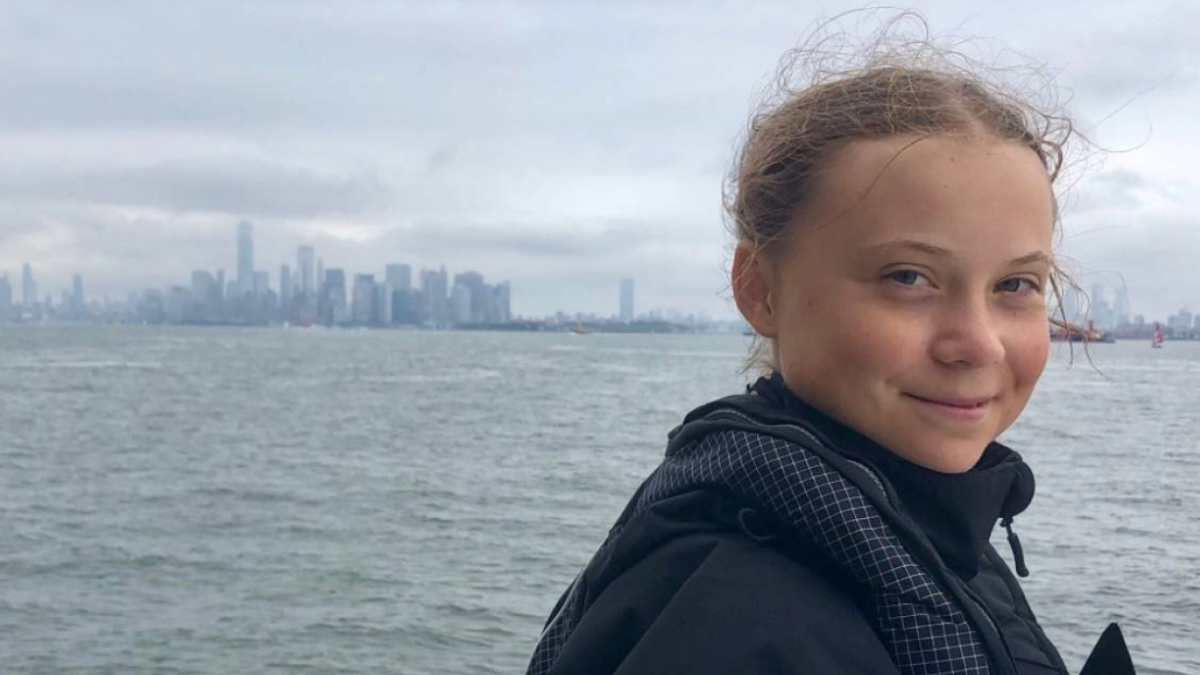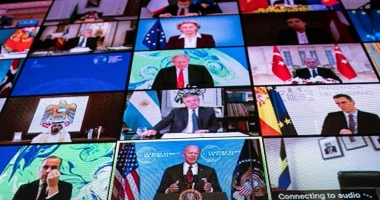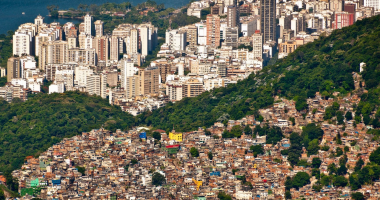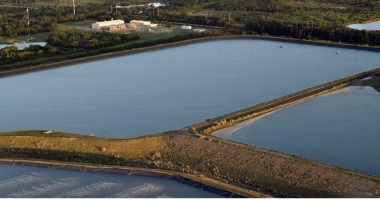Climate, Health and Equity Brief
Youth, Indigenous Peoples, and Climate Activism
December 13, 2019

|
Hot Topic: Youth. Youth activists took the global spotlight this week as 16-year-old Greta Thunberg was named Time’s Person of the Year and young people from around the world stormed the stage at the COP25 conference to demand real climate action from world leaders.
Greta Thunberg spoke at the conference, as did 22-year-old college student Hilda Flavia Nakabuye of Uganda, who has been protesting in Kampala since 2017 when she realized climate change was causing the droughts that wiped out her family’s crops. Nakabuye, who founded #FridaysforFuture in Uganda, called out attendees for negotiating “since before she was born” and urged that the time for action is now.
Indigenous youth also took the spotlight in Madrid, speaking out against extraction, new pipeline and mining projects and the environmental devastation of their territories and leading nearly 500,000 protesters on a massive march through Madrid’s city center to demand climate action. “It is time for us all to reconnect with Mother Earth,” said 18-year-old youth delegate Rose Whipple, a member of the Santee Dakota and Ho-Chunk nations. “Our movements must be bigger than recycling and braver than holding signs.”
A global survey of youth aged 18-25 from 22 countries also revealed that 41 percent of respondents cited global warming as the most important issue facing the world, suggesting that brave and powerful youth activism to protect our climate is here to stay, and could ultimately be the force that turns talk into action.
—Matt & Traci, GMMB
Action
Upon being named Time’s Person of the Year, 16-year-old Greta Thunberg insisted on equal recognition of fellow climate activists, especially indigenous people, who are most heavily impacted by the climate crisis. (The Los Angeles Times)
Young activists took over the main stage at the COP25 climate conference in Madrid Wednesday, demanding that world leaders commit to far more ambitious action to address climate change. (EcoWatch)
The world’s first fully electric-powered airplane took flight in Australia this week, increasing future potential to combat the world’s fastest-growing source of carbon emissions. (The Guardian)
Equity
Indigenous youth were a force at the COP25 summit, speaking out against extraction, new pipeline projects and the environmental devastation of their territories. (Grist)
The United Nations’ 2019 Human Development Report warns that a new generation of global inequalities driven by climate change and technology could trigger violence and political instability if left unchecked. (Aljazeera)
A new analysis reveals that 10 major U.S. electric utilities use charitable contributions as a means to manipulate policies, politics, and regulation in ways designed to increase shareholder profits, often at the expense of low-income communities. (Energy and Policy Institute)
Health
A new analysis found that reducing air pollution improves public health and reduces hospital visits in as little as two weeks. (Grist)
A new study found that intensifying heat waves and droughts are increasing the risk of widespread food shortages and price spikes in North America, Western Europe, and western Asia. (The Washington Post)
Bushfires caused by extended droughts across New South Wales have combined into a single devastating blaze, spreading hazardous smoke and ash for 1,200 miles. (Reuters)
Politics & Economy
A new report found that the level of oxygen loss in the world’s oceans as a result of ocean warming is significant enough to affect the planetary cycling of elements such as nitrogen and phosphorus, which are essential for life on Earth. (The Independent)
A global survey of youth aged 18-25 from 22 countries reveals that 41% of respondents cited global warming as the most important issue facing the world. (Forbes)
California has banned insurance companies from dropping coverage for homeowners in high wildfire risk areas as legislators examine strategies to protect both consumers and the insurance industry in the face of intensifying natural disasters. (The New York Times)
Kicker
Wonder how pollution in your city compares to the rest of the world? Check out this interactive visualization to compare your local air quality with this year’s worst pollution levels. (The New York Times)
“I want you to panic. I want you to feel the fear I feel every day. And then I want you to act.”
– Greta Thunberg






